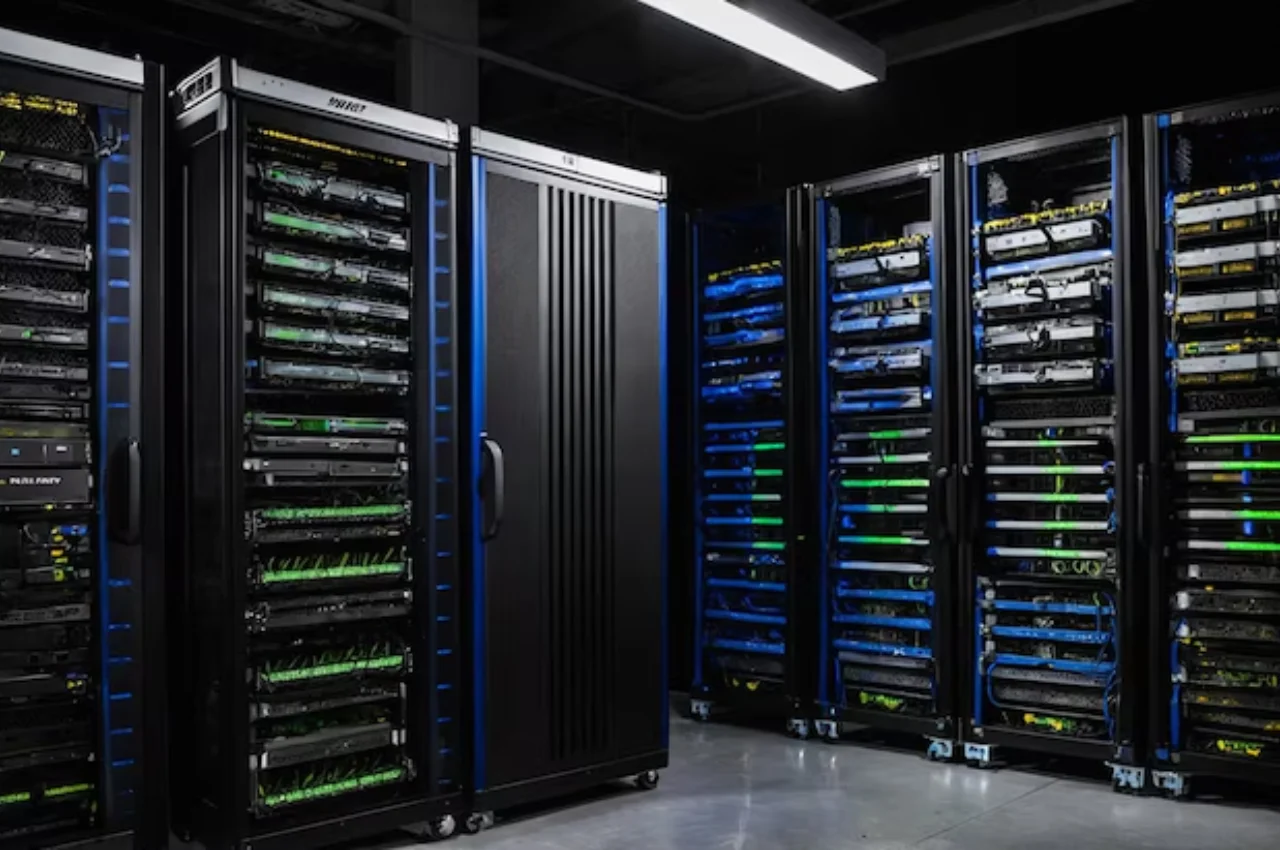A server is a computer that provides data or services to other devices on a network. It stores, processes, and manages information for clients to access.
In today’s digital age, servers play a crucial role in various industries, from businesses to healthcare and education. They enable the storage and retrieval of data, facilitate communication, and support applications and websites. Servers are essential for businesses to operate efficiently and securely. By understanding the function and importance of servers, organizations can make informed decisions to optimize their technological infrastructure and enhance their overall performance.
Let’s delve deeper into the world of servers and explore their impact on modern-day operations.
Table of Contents
What is a Server
A server is a specialized computer designed to provide services, resources, or data to other computers, known as clients, over a network. Servers are central to networked environments, handling tasks such as hosting websites, managing email, and storing files. They operate on a server operating system and are typically more powerful than regular computers, with higher processing power, memory, and storage capacity.

Servers can be physical machines or virtual instances running on shared hardware. They play a crucial role in ensuring smooth operation and access to networked resources and services.
Definition of a Server
A server is a specialized computer or software system designed to manage, store, and distribute data and resources across a network. It provides services, such as hosting websites, storing files, and running applications for other computers or clients, known as clients or workstations. Servers can be physical hardware or virtual machines and typically operate continuously to ensure reliable access to resources.
They handle tasks like processing requests, maintaining security, and managing network traffic, making them essential for modern computing and networking environments.
How Servers Work
Servers function by handling requests from client devices over a network. When a client sends a request, such as accessing a website, the server processes this request using its resources, like CPU and memory. It then retrieves or generates the necessary data and sends a response back to the client. Servers operate continuously, ensuring reliable access to services and data. They manage network traffic, maintain security, and often include redundancy to prevent downtime and ensure consistent performance.
Types of Servers
- Web servers
- Email servers
- File servers
- Database servers
Importance of Servers
Servers play a crucial role in the functioning of the internet and data management. They serve as the backbone of the internet, are vital in data management, and form critical infrastructure for various online services. Understanding the importance of servers is essential for comprehending their impact on our daily digital interactions.
Backbone of The Internet
Servers act as the backbone of the internet, facilitating the exchange of data and information across the globe. They enable the seamless transfer of web pages, emails, files, and more, ensuring that users can access and share digital content effortlessly.
Role in Data Management
Servers play a pivotal role in data management by storing, retrieving, and processing vast amounts of information. They provide the necessary computing power and storage capacity for businesses and organizations to manage their data efficiently and securely.
Critical Infrastructure
Servers form critical infrastructure for various online services, including websites, applications, and cloud computing. They ensure the smooth functioning of these services, allowing users to access and interact with digital resources without interruptions.
Server Hardware
Server hardware consists of essential physical components designed for high performance and reliability. Key elements include powerful processors (CPUs) for handling multiple tasks, large amounts of RAM for efficient data access, and high-capacity storage options like SSDs or HDDs. The motherboard connects all components, while the power supply ensures consistent energy. Cooling systems are crucial for maintaining optimal temperatures. Together, these components support the server’s ability to manage extensive workloads and operate continuously in demanding environments.

Processor
A server’s processor, also known as the central processing unit (CPU), is the brain of the server. It performs calculations and processes data to handle various tasks efficiently.
Memory
Memory, often referred to as RAM (random access memory), is where the server temporarily stores data that the processor needs to access quickly. It plays a crucial role in the server’s performance and multitasking capabilities.
Storage
Server storage refers to the hardware used to store data, applications, and the operating system. It includes hard disk drives (HDDs), solid-state drives (SSDs), and other storage devices, which are essential for data retention and retrieval.
Server Software
Server software refers to the programs and applications that enable a server to perform its functions. It includes a range of software components designed to facilitate the operation and management of servers. Let’s delve into the different types of server software that play crucial roles in the functionality of servers.
Operating Systems
An operating system (OS) is the fundamental software that manages computer hardware resources and provides the necessary services for server operations. It acts as an intermediary between users and the computer hardware, ensuring seamless communication and execution of tasks.
Web Servers
Web servers are software applications responsible for delivering web content to clients over the internet. They respond to requests from web browsers, serving web pages, images, videos, and other content. Apache, Nginx, and Microsoft Internet Information Services (IIS) are some of the widely used web server software.
Database Servers
Database servers handle database management tasks, storing and retrieving data as per requests from client applications. These servers are crucial for maintaining data integrity and security. MySQL, Microsoft SQL Server, and Oracle Database are popular database server software used for various applications.
Server Security
Server security is a critical aspect of maintaining a secure and reliable network infrastructure. It involves implementing measures to protect servers from unauthorized access, data breaches, and cyber attacks. With the increasing frequency and sophistication of cyber threats, ensuring robust server security is essential for safeguarding sensitive information and maintaining the integrity of digital assets.
Protecting Against Cyber Attacks
Protecting servers against cyber attacks is a top priority for businesses and organizations. Implementing firewalls, intrusion detection systems, and regular security audits are essential measures for preventing unauthorized access and mitigating potential threats. Additionally, installing security patches and updates for server software and operating systems helps to address vulnerabilities and strengthen defenses against malware and other malicious activities.
Best Practices for Server Security
Implementing best practices for server security involves enforcing strong password policies, restricting access privileges, and encrypting sensitive data. Regularly backing up server data and maintaining disaster recovery plans are crucial for minimizing the impact of security breaches and ensuring business continuity. Furthermore, conducting regular security training for employees and promoting awareness of social engineering tactics can help prevent unauthorized access and data breaches.
Importance of Server Security
The importance of server security cannot be overstated. Securing servers safeguards sensitive information, maintains the trust of customers and stakeholders, and ensures compliance with data protection regulations. A proactive approach to server security not only mitigates potential risks but also enhances the overall resilience of an organization’s network infrastructure.
Future of Servers
The future of servers holds exciting developments as technology advances rapidly. Emerging technologies, impact on the internet, and predictions for the future all play significant roles in shaping the server landscape.

Emerging Technologies
- Edge computing enables data processing closer to the source, reducing latency.
- Quantum computing has the potential to revolutionize server capabilities.
- AI-driven servers optimize performance and enhance security.
Impact on The Internet
- Faster speeds due to improved server technologies enhance user experiences.
- Scalability allows servers to accommodate increasing internet traffic seamlessly.
- Improved security measures safeguard data and privacy in the digital realm.
Predictions for The Future
- Serverless architecture will gain popularity, shifting focus from hardware to functionality.
- Hybrid cloud solutions will become more prevalent for flexible and efficient server management.
- Energy-efficient servers will be a priority to reduce environmental impact and operational costs.
Conclusion
In essence, a server acts as a powerhouse, managing data and facilitating communication. Understanding its role is crucial for businesses and individuals navigating the digital landscape. By grasping the fundamentals of servers, one can optimize performance and ensure seamless connectivity in today’s technology-driven world.


